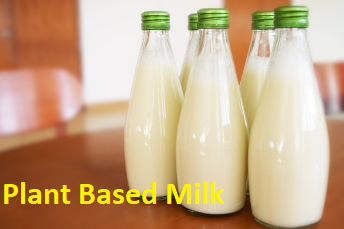
(Photo : pixabay.com)
Plant-Based Milks
- Plant-based milks may not provide the same nutritional benefits as cow's milk due to intense heat treatments.
- These treatments can produce acrylamide, a known carcinogen, posing potential health risks.
- The production of plant-based milks has environmental implications, including greenhouse gas emissions and deforestation.
- Despite challenges, demand for plant-based milks grows, leading to innovations for improving sustainability and nutritional quality.
The global shift towards plant-based alternatives to traditional dairy products has been driven by a multitude of factors, including environmental concerns, health benefits, and changing consumer preferences. However, recent studies have raised questions about the nutritional quality and potential health risks associated with these alternatives, particularly plant-based milks.
Plant-based milks, such as oat, almond, and soy milk, have gained popularity over the past decade due to their perceived environmental benefits. However, a study conducted by researchers from the University of Copenhagen has revealed that these alternatives may not provide the same nutritional benefits as cow's milk. The study examined 10 different plant-based drinks and compared them with cow's milk to understand the impact of chemical reactions during processing on their nutritional quality.
The researchers found that plant-based drinks undergo more intense heat treatments than cow's milk to extend their shelf life, a process known as ultra-high temperature (UHT) treatment. This treatment triggers a chemical reaction between protein and sugar, known as the Maillard reaction, which reduces the nutritional quality of the proteins.
The Health Implications of Plant-Based Milks
Furthermore, the heat treatment may also produce cancer-causing compounds. The researchers found acrylamide, a known carcinogen, in four of the plant-based drinks made from almonds and oats. While the levels of acrylamide found were low and posed no immediate danger, the researchers warned that its consumption in small amounts from various sources could add up to a level that poses a health risk. This revelation has sparked a debate about the health implications of plant-based milks and the need for further research and regulation in this area.
In addition to health concerns, the production of plant-based milks also has environmental implications. The manufacturing process of these alternatives often involves extensive processing, which can lead to the release of greenhouse gases and other pollutants. Moreover, the cultivation of crops for these milks can contribute to deforestation and biodiversity loss.
Despite these challenges, the demand for plant-based milks continues to grow, driven by changing consumer preferences and increasing awareness about the environmental impact of dairy farming. This has led to the development of new technologies and practices aimed at improving the sustainability and nutritional quality of these products.
Innovations in Plant-Based Milk Production
For instance, some manufacturers are exploring the use of secondary feedstocks, such as agricultural waste, to produce plant-based milks. This approach not only reduces the environmental impact of production but also provides a potential solution to the problem of food waste.
Moreover, researchers are also investigating the potential of single cell protein (SCP) technologies for food and feed production. SCPs, derived from microbial biomass, offer a sustainable and efficient solution to meet the increasing global demand for protein. These proteins can be produced at a lower cost and with a smaller environmental footprint than traditional protein sources.
* This is a contributed article and this content does not necessarily represent the views of btin.co.in









